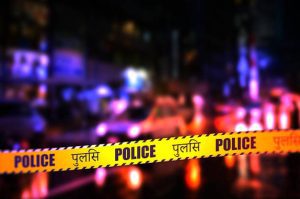RG Kar Hospital Death Case — The trauma unit of R.G. Kar Medical College and Hospital erupted in tension late Monday night following the death of Gopal Banik, a 21-year-old from Dakshindari. Banik, who was struck by a speeding train, reportedly bled for half an hour in hospital corridors before receiving treatment—a delay his family and locals say cost him his life.
RG Kar Hospital Death Case: What Transpired
- Around midnight, Banik was rushed to the hospital after the accident, according to friends and family. He arrived at the trauma unit with critical injuries.
- According to eyewitnesses, hospital staff required the family to purchase a treatment ticket and produce documents like an Aadhaar card before a doctor could attend to him.
- “He was left bleeding on the trolley for nearly 30 minutes,” his mother alleged. By the time medical personnel intervened, Banik’s condition had deteriorated.
- He was declared dead shortly thereafter—sparking outrage among relatives and friends who believed the delay to be a direct cause.
Escalation and Security Response
- As news of the delay spread, a crowd of upset residents assembled at the hospital entrance, demanding answers and threatening to vandalize the facility.
- Security personnel, including units from the CISF, were deployed to manage the situation and prevent violence.
- The police registered a General Diary (GD) at Bowbazar Police Station and opened an inquiry into the hospital’s conduct.

Hospital Seeks Answers, Launches Inquiry
- R.G. Kar authorities say they have initiated an internal investigation to examine the allegations.
- Hospital management maintains that trauma unit protocols were followed, but they are reviewing video footage of the admission process and initial minutes after arrival.
- Depending on inquiry findings, actions may include staff accountability or adjustments to admission protocols.


Legal and Ethical Concerns
This case raises serious questions about critical care and patient rights:
- Immediate treatment should not be contingent on identity documents or payment under Emergency Medical Treatment laws in India.
- Trauma protocols require prompt medical intervention to preserve life.
- Ethical and legal frameworks, including the Indian Medical Council (Professional Conduct) Regulations, stipulate that no patient should be denied emergency care.
External Reference: Indian Medical Council (Professional Conduct) Regulations – https://www.nmc.org.in
Broader Context: Similar Incidents
This tragedy resonates with prior cases:
- In September 2024, a 26-year-old accident victim died at R.G. Kar amid a junior doctors’ strike—the mother accused doctors of negligence.
- That incident also sparked protests from political leaders and prompted broader complaints about patient care during protests and understaffing.
Systemic Challenges in Emergency Care
Experts point to systemic issues in public hospital emergency care:
- Overcrowding in tertiary facilities with limited staff and inadequate tracking systems.
- Document and ticketing procedures delaying critical treatment.
- Staff shortages and burnout—notably among junior doctors—contributing to delays.
- Poor accountability; internal audits are rare, and external oversight is limited.
Moving Forward: The Way Ahead
Officials and experts suggest remedies:
- Strict implementation of emergency care protocols granted by law.
- Sensitisation of security and frontline staff to prioritize life-saving treatment.
- Regular audits and review mechanisms to prevent procedural delays.
- Real-time complaint redressal systems at hospital entry points.
- Adequate staffing ratios to handle peaks in patient inflow.
Final Reflection
The tragic death of Gopal Banik at R.G. Kar’s trauma unit underscores the human cost of procedural rigidity in emergency care. Prompt treatment—documents or not—can save lives. This incident should prompt a review of hospital policies, urgent training, and system reforms to ensure no more lives are lost waiting in a queue.
Also read: Home | Channel 6 Network – Latest News, Breaking Updates: Politics, Business, Tech & More

